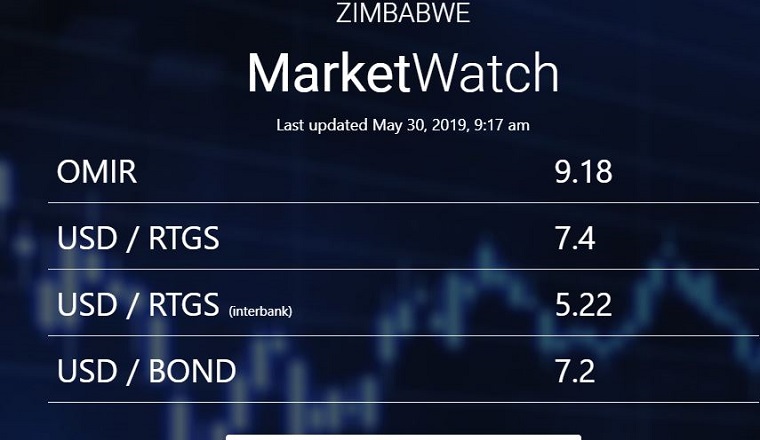 Having failed to persuade Finance Minister Mthuli Ncube to adopt the South African rand as its currency, business is quietly pushing the exchange rate to 10:1 which sources say it is comfortable with.
Having failed to persuade Finance Minister Mthuli Ncube to adopt the South African rand as its currency, business is quietly pushing the exchange rate to 10:1 which sources say it is comfortable with.
Sources in the sector said South African investors, in particular, are watching the rate and believe that it will open doors not only for investment but also for a huge bailout from Pretoria.
Although Mthuli Ncube initially wanted to abandon the bond note, before and immediately after being appointed, he seems to have been persuaded that while this made good economic sense it was political suicide as Zimbabweans would once again be losing their savings, for the second time in a decade.
Ncube now argues that adopting the United States dollar or the South African rand is not currency reform but capitulation.
Yesterday he told former Finance Minister Tendai Biti that he had destroyed the country’s capacity to conduct its own monetary policy by adopting the US dollar in 2009.
Ncube, however, sought to gradually liberalise the exchange rate but Zimbabweans protested against price hikes in January forcing the military to clamp down on the protesters killing several in the process.
The government went ahead to abolish the 1:1 exchange rate in February and introduced a local currency known as the RTGS dollar which kicked off at 2.5 to 1 but has gradually fallen to 5.22.
While the aim was narrow the gap between the interbank rate and the black market rate, the black market rate has also rocketed to 7.4 signalling that powerful forces could be at play.
The premium which those who have access to funds at the interbank rate enjoyed when they changed the money on the black market has, however, slightly narrowed from 50 percent to 41 percent.
Information Minister Monica Mutsvangwa said the government was aware of the big shacks behind the black market and will soon bring them to book.
Ironically, the ruling Zimbabwe African National Union-Patriotic Front carried out a similar exercise in October last year when the central bank re-introduced foreign currency accounts and Mthuli Ncube announced a two percent tax that allegedly led to the black market rate spiralling out of control.
During the exercise, it was discovered that some of the big shacks were senior party officials, some of whom were in government.
Central bank governor John Mangudya said one person pushed in US$48 million on to the black market.
“The people moving money onto the black market, the people behind the money changers, are not your ordinary Zimbabwean,” Mangudya said.
“These are influential people with access to huge sums of cash. It has been discovered that one character has been pushing onto the black market as much as $48 million in foreign currency.
“This person has access to cash and it is difficult to understand how this could have happened without the knowledge of the CIO, the FIU (the RBZ’s Financial Intelligence Unit), the police as well as the commercial bank.”
Eight months have gone by but nothing has been done about the big shacks up to now.
(198 VIEWS)


